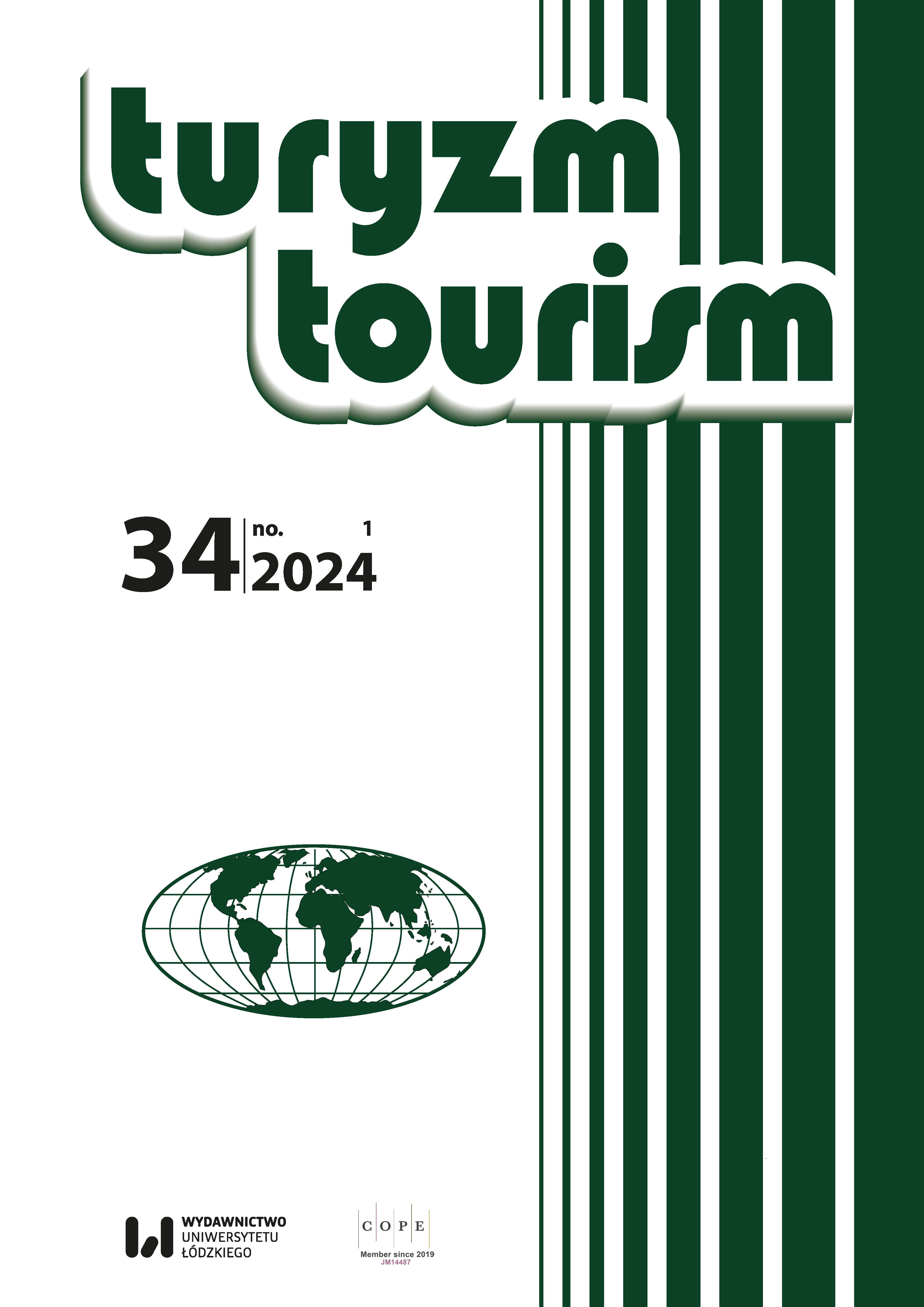A tourist facility with a ban on children playing: The principle of non-discrimination and the statement of the Bulgarian court
DOI:
https://doi.org/10.18778/0867-5856.34.1.11Słowa kluczowe:
discrimination, unequal treatment, law on tourism, anti-discrimination lawAbstrakt
Recently, both in Bulgaria and abroad, it is increasingly common to find accommodation, restaurants and entertainment facilities that advertise and offer a wide range of services. However, these are not intended for general consumers but only those who have reached maturity (excluding minors and the under-aged). According to press publications hotels and restaurants that pre-select their guests based on their age are mainly concentrated on the Bulgarian Black Sea coast and in the mountains or they specialize in spa and balneo procedures. It turns out that consumers find it easier to stay with a pet, albeit at an extra cost, than go on vacation with their teenage children. Such practices adopted by representatives of the tourism industry raise some questions of a moral, ethical and legal nature. The current article traces the development of a specific administrative and judicial proceeding initiated to establish the presence of discrimination against consumers in a tourist facility – a restaurant. An overview of the claims and arguments of the claimant is made as well as an analysis of the reasons and considerations given by the competent administrative and judicial authorities. The author’s opinion on the issue is expressed.
Pobrania
Bibliografia
Craig, R.L. (2007). Systemic discrimination in employment and the promotion of ethnic equality. Martinus Nijhoff Publishers.
Google Scholar
DOI: https://doi.org/10.1163/ej.9789004154629.i-334
Directive 2000/43/EC. Of 29 June 2000 implementing the principle of equal treatment between persons irrespective of racial or ethnic origin. European Parliament, Council of the European Union. https://eur-lex.europa.eu/legal-content/EN/TXT/?uri=CELEX%3A32000L0043
Google Scholar
Directive 2006/54/EC. Of the European Parliament and of the Council of July 2006 on the implementation of the principle of equal opportunities and equal treatment of men and women in matters of employment and occupation (recast). European Parliament, Council of the European Union. https://eur-lex.europa.eu/legal-content/EN/TXT/HTML/?uri=CELEX%3A32006L0054
Google Scholar
European Commission, Directorate-General for Justice and Consumers. (2015). Discrimination in the EU in 2015: Report. https://doi.org/10.2838/499763
Google Scholar
Fibbi, R., Midtbøen, A.H., & Simon, P. (2021). Migration and discrimination. Springer.
Google Scholar
DOI: https://doi.org/10.1007/978-3-030-67281-2
Fredman, S. (2011). Discrimination law (2nd ed.). Oxford University Press.
Google Scholar
Handbook on European non-discrimination law. (2018). European Union Agency for Fundamental Rights and Council of Europe. https://www.echr.coe.int/documents/d/echr/Handbook_non_discri_law_ENG
Google Scholar
Khaitan, T. (2015). A theory of discrimination law. Oxford University Press.
Google Scholar
DOI: https://doi.org/10.1093/acprof:oso/9780199656967.001.0001
Komisiya za zashtita ot diskriminatsia / Comission for Protection against Discrimination. (n.d.). https://kzd-nondiscrimination.com/layout/
Google Scholar
Konstitutsia na Republika Bulgaria, prieta ot VII Veliko Narodno Sabranie na 12 yuli 1991 g / Constitution of the Republic of Bulgaria, adopted by the VII Grand National Assembly on July 12, 1991. Prom. SG 56/13 Jul 1991. (1991) (Bulgaria). https://www.parliament.bg/en/const
Google Scholar
Krizsan, A., Skjeie, H., & Squires, J. (Eds.). (2012). Institutionalizing intersectionality: The changing nature of European equality regimes. Palgrave Macmillan.
Google Scholar
DOI: https://doi.org/10.1057/9781137031068
Reshenie № 115/2016 na Komisiyata za zashtita ot diskriminatsia [Decision № 115/2016 of the Comission for Protection against Discrimination] (Bulgaria).
Google Scholar
Reshenie № 5190/2020 na Komisiyata za zashtita ot diskriminatsia [Decision № 5190/2020 of the Comission for Protection against Discrimination] (Bulgaria).
Google Scholar
Reshenie № 5959/2012 po administrativno delo № 1526/2012 na Varhoven administrativen sad [Decision № 5959/2012 under administrative case № 1526/2012 of the Supreme Administrative Court] (Bulgaria).
Google Scholar
Reshenie № 5970/2021 po administrativno delo № 14588/2019 na Varhoven administrativen sad [Decision № 5970/2021 under administrative case № 14588/2019 of the Supreme Administrative Court] (Bulgaria).
Google Scholar
Reshenie № 1944/2019 po administrativno delo № 7087/2018 na Varhoven administrativen sad [Decision № 1944/2019 on civil case № 7087/2018 of the Supreme Administrative Court] (Bulgaria).
Google Scholar
Reshenie № 3074/2019 po administrativno delo № 56/2019 na Administrativen sad – Stara Zagora [Decision № 3074/2019 under administrative case № 56/2019 of Administrative Court – Stara Zagora] (Bulgaria).
Google Scholar
Reshenie № 1031/2023 po grazhdansko delo № 7195/2023 na Sofiyski rayonen sad [Decision № 1031/2023 on civil case № 7195/2023 of Sofia District Court] (Bulgaria).
Google Scholar
Reshenie № 4281/2023 po grazhdansko delo № 8999/2023 na Sofiyski rayonen sad [Decision № 8999/2023 on civil case № 8999/2023 of Sofia District Court] (Bulgaria).
Google Scholar
Reshenie № 12/2018 na Konstitutionnia sad na Republika Bulgaria po konstitucionno delo № 1/2018 [Decision № 12/2018 of the Constitutional Court of the Republic of Bulgaria on constitutional case № 1/2018] (Bulgaria).
Google Scholar
Reshenie № 2/2019 po grazhdansko delo № 3203/2018 na Varhoven kasacionen sad, 3-to grazhdansko otdelenie [Decision № 2/2019 on civil case № 3203/2018 of the Supreme Court of Cassation, 3th Civil department] (Bulgaria).
Google Scholar
Zakon za turizma [Tourism act]. Prom. SG 30/26 March 2013. (2013) (Bulgaria). https://lex.bg/bg/laws/ldoc/2135845281
Google Scholar
Zakon za zashtita ot discriminatsia [Anti-discrimination law]. Prom. SG 86/30 Sept 2003. (2003) (Bulgaria). https://lex.bg/laws/ldoc/2135472223
Google Scholar
Pobrania
Opublikowane
Jak cytować
Numer
Dział
Licencja

Utwór dostępny jest na licencji Creative Commons Uznanie autorstwa – Użycie niekomercyjne – Bez utworów zależnych 4.0 Międzynarodowe.










